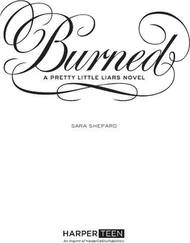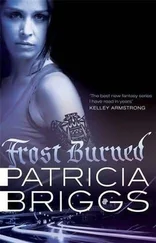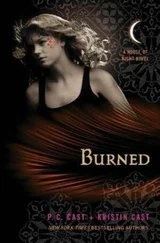Thomas Enger - Burned
Здесь есть возможность читать онлайн «Thomas Enger - Burned» весь текст электронной книги совершенно бесплатно (целиком полную версию без сокращений). В некоторых случаях можно слушать аудио, скачать через торрент в формате fb2 и присутствует краткое содержание. Жанр: Триллер, на английском языке. Описание произведения, (предисловие) а так же отзывы посетителей доступны на портале библиотеки ЛибКат.
- Название:Burned
- Автор:
- Жанр:
- Год:неизвестен
- ISBN:нет данных
- Рейтинг книги:5 / 5. Голосов: 1
-
Избранное:Добавить в избранное
- Отзывы:
-
Ваша оценка:
- 100
- 1
- 2
- 3
- 4
- 5
Burned: краткое содержание, описание и аннотация
Предлагаем к чтению аннотацию, описание, краткое содержание или предисловие (зависит от того, что написал сам автор книги «Burned»). Если вы не нашли необходимую информацию о книге — напишите в комментариях, мы постараемся отыскать её.
Burned — читать онлайн бесплатно полную книгу (весь текст) целиком
Ниже представлен текст книги, разбитый по страницам. Система сохранения места последней прочитанной страницы, позволяет с удобством читать онлайн бесплатно книгу «Burned», без необходимости каждый раз заново искать на чём Вы остановились. Поставьте закладку, и сможете в любой момент перейти на страницу, на которой закончили чтение.
Интервал:
Закладка:
But the fridge worked. He can still recall how cold the milk would be. And he decides it’s all right to grow old and still be in working order. He has never tasted milk so cold, never experienced brain freezes like the ones he used to get on summer holidays in their tiny cabin. But it was fun. It was cosy. They went crabbing, played football on the large plain at the camping site, climbed rock faces, learned to swim in the sea, barbecued sausages on the beach in the evenings.
The age of innocence. Why couldn’t it have stayed that way?
He wonders if Trine remembers those summers.
*
He thinks about sharia again. Allah-u-akbar. And he recalls what Zahid Mukhtar, the head of the Islamic Council in Oslo, said in 2004:
As a Muslim, you’re subject to Islamic law and, to Muslims, sharia takes precedent over all other laws. No other interpretation of Islam is possible.
Henning interviewed a social anthropologist at the Christian Michaelsen Institute shortly afterwards, and she explained that most people in the West have a distorted image of sharia. Though there are traditions going back a thousand years and a certain consensus exists on how to interpret the laws of Allah, sharia isn’t a single unambiguous set of written laws. Religious scholars, who interpret the Koran and Hadith texts, decide what is right and wrong, and their reading is influenced by whatever culture affects them. In Norway, most people associate sharia with the death penalty in Muslim countries. And this ignorance is deliberately exploited.
The social anthropologist, whose name he can’t remember, showed him a website in Norwegian that listed sharia law in bullet points and the punishments for breaking them. ‘This is very simplistic,’ she said, pointing to the screen. ‘Few people will understand what sharia is really about from this. It’s people who aren’t scholars who might post a page like this. They use a fluid concept to gain power and influence. Most people don’t realise that hudud punishments are quite low key in the Koran. A few scholars even think they should be ignored completely.’
The interview made an impression on Henning because it challenged his own prejudices against Muslims in general and sharia in particular. And now, when he thinks about hudud punishments and links them to the murder of Henriette Hagerup, a number of things fail to add up. She wasn’t a Muslim. Nor was she married to one and, as far as he knows, she hadn’t stolen anything, either, and yet her hand had been chopped off.
He shakes his head. A few years ago, he might have been able to come up with a credible explanation, but now he is increasingly convinced that it makes no sense. And that’s the problem. It always makes sense. It has to. He just needs to find the common denominator.
Chapter 21
Henning’s flat reminds him of a garage sale. He doesn’t like garages. He doesn’t know why, but they make him think of cars, idle engines, closed doors and screaming families.
Back in Klofta, the Juuls’ garage contained tyres that should have been thrown out long ago, ancient and unusable bicycles, rusty gardening tools, leaking hoses, bags of shingle, skis no one ever used, tins of paint, paintbrushes, logs stacked against the wall. Even though Henning’s father never tinkered with any of the cars he owned, the place always smelled like a garage. It smelled of oil.
The smell of oil will always remind him of his father. He doesn’t remember all that much about him, but he remembers his smell. Henning was fifteen years old when his father died suddenly. One morning, he simply failed to wake up. Henning had got up early; he had an English test later that day. His plan was to do some last-minute revision before the rest of his family stirred, but Trine was already awake. She was sitting on the bathroom floor, her legs pulled up to her chest. She said:
He’s dead.
She pointed to the wall, the wall to their parents’ bedroom. She wasn’t crying, she merely kept saying:
He’s dead.
He remembers knocking on the door, even though it was ajar. The door to his parents’ bedroom was always closed. Now it swung open. His father lay there with his hands on the duvet. His eyes were shut. He looked at peace. His mother was still asleep. Henning went over to his father’s side of the bed and looked at him. He looked like he was sleeping. When Henning shook him, he didn’t move. Henning shook him again, harder this time.
His mother woke up. At first, she was startled, wondering what on earth Henning was up to. Then she looked at her husband — and screamed.
Henning doesn’t remember much of what happened next. He only recalls the smell of oil. Even in death, Jakob Juul smelled of oil.
*
After a breakfast consisting of two cups of coffee with three sugars, Henning decides to go to work. It is only 5.30 a.m., but he thinks there is no point in hanging around the flat.
He visualises the sea as he turns into Urtegata. He should be feeling tired, but the coffee has woken him up. Solvi isn’t there yet, but he visualises her, too, as he swipes his card.
There is only one other person in the office when he arrives. The night duty editor is hunched over his keyboard, sipping a cup of coffee. Henning nods briefly to him as they make eye contact, but the duty editor soon returns to his screen.
Henning lets himself sink into his squeaking chair. He catches himself wondering when Iver Gundersen gets to work, if he is post-coital and glowing, if it’s plain for all to see that Nora gave him a good start to the day.
By the time Henning snaps out of his self-flagellating fantasy, he could have sworn he could detect Nora’s scent. A hint of coconut against warm skin. He doesn’t recall the name of the lotion, the one she loved and which he loved that she wore. But he can smell coconut all around him. He turns, gets halfway up from his chair and looks around. The duty editor and he are the only two people there. And yet he can smell coconut. Sniff, sniff. Why can’t he recall the name of that lotion?
The scent disappears as quickly as it came. He falls back into his chair.
The sea, Henning, he tells himself. Focus on the sea.
Chapter 22
Research is a fine word. It’s even a profession. A researcher. Every TV series has one. Every TV news desk has one, sometimes many.
Henning spends his time doing a little research while the rest of the newspaper wakes up. Research matters, it is possibly a journalist’s most important task when there isn’t much else to do. Dig, dig dig. The oddest but ultimately crucial snippets of information can be found in the strangest texts or public records.
He remembers a story he worked on years ago. He was relatively inexperienced at the time, probably hadn’t covered more than ten murders when a vicar, Olav Jorstad disappeared in the sea, off the coast of Sorland. Everyone knew how much Jorstad liked fishing, but he was familiar with the sea and would never have gone out if bad weather had been forecast.
Eventually, his boat was found, bottom up. Jorstad himself was never found and everything pointed to a tragic accident. The current had very likely carried his body out into the wide, blue sea.
Henning covered the story for Aftenposten, and put together a standard package, which meant interviewing family, neighbours, friends, Jorstad’s congregation, the whole Norwegian Bible belt, practically. After discussing the story with his editor, Henning decided to stay on because he had a hunch that something was missing from the picture of Jorstad that everyone was painting. In the eyes of his parishioners, Jorstad was an outstanding vicar, a brilliant spiritual leader, who had the gift of the gab; some even claimed that he had healed them, but Henning never reported such claims in his articles. He suspected some of them of actively courting publicity.
Читать дальшеИнтервал:
Закладка:
Похожие книги на «Burned»
Представляем Вашему вниманию похожие книги на «Burned» списком для выбора. Мы отобрали схожую по названию и смыслу литературу в надежде предоставить читателям больше вариантов отыскать новые, интересные, ещё непрочитанные произведения.
Обсуждение, отзывы о книге «Burned» и просто собственные мнения читателей. Оставьте ваши комментарии, напишите, что Вы думаете о произведении, его смысле или главных героях. Укажите что конкретно понравилось, а что нет, и почему Вы так считаете.












